

Diana Spechler is the author of the novel Who By Fire (Harper Perennial.) Her fiction has appeared in such publications as Glimmer Train, Greensboro Review, and Moment. She has taught at the University of Montana and the Interlochen Center for the Arts. She holds a BA from the University of Colorado and an MFA in Creative Writing from the University of Montana.
NO SPOILERS!!!
It catches you right from the start and grabs you and doesn't let go.
I don't call this a Jewish book. But it is written of course by a Jewish author.
The book deals with issues that could and probably has happened to many families that are Jewish or not.
Family problems, the mother, sister, and brother don't know how to communicate with one another and guilt, and guilt, and guilt, and there is plenty of that to go around.
That is what Jews are famous for. They all deal with the crisis differently. The book does deal with the Intifada, and the brother running off to Israel and becomes a B'al Teshuva( religious Jew), and cuts himself off from his family. I just loved the characters, How each family member deals with their sister's disapearance and their father leaving the family. It was a very good read.
I have been waiting for a novel by a author to touch and talk about the situation in Israel. I thought it was interesting how Diana made the narrative into alternate voices through out the book instead of a straight narrative. I think it was quite effective. I don't think the book would have had the impact it did on me if it was a straight narrative.
I would like to thank Diana for stopping by and chatting with me during her busy book tour. This happens to be Jewish Book Month, when we find out what Jewish Books are flying off the shelves.
How did you come to write Who By Fire? Were there events in your life that led you to write it?
When I was a grad student, I wrote a short story about two of the protagonists, Bits and Ash, who are brother and sister. Bits lives in Boston and Ash lives in Jerusalem, learning at a yeshiva. At the beginning of the story, Bits learns of a suicide bombing in Jerusalem and wants to know if Ash is okay. She keeps calling him, but he never responds. The story, which I titled Close To Lebanon, ends without resolution. A few months after I finished Close To Lebanon, it was the tense plot and the fictional family, rather than my own family or events from my own life, that wound up haunting me enough to expand the story into a novel.
Do you consider yourself a Jewish writer?
I am Jewish and I am a writer, but not everything I write is about Judaism. At the moment, people refer to me as a Jewish writer because of the themes and the setting of Who By Fire. Truly, that’s an honor. There are so many amazing Jewish writers.
What makes a Jewish novel?
I think that classification is somewhat subjective. If I write a novel that has nothing to do with Judaism, it will still be a Jewish novel, because Judaism is transmitted through the mother, and I am, after all a woman. (Yes, I’m joking. Kind of.)
Did you always want to be a writer?
Yup. I was writing stories as soon as I could pick up a pen. My mother has a twenty-four page story I wrote when I was seven years old. It’s called Shana and The Magic Quilt. It is a masterpiece.
Is there a certain Jewish author you look up to?
I love a lot of Jewish authors. Two of my favorite Jewish novels are The Ladies’ Auxiliary by Tova Mirvis and The History of Love by Nicole Krauss.
Is there a secular author you look up to?
Only about a million of them. Jeffrey Eugenides is one of my favorites because of his novel Middlesex.
Was there an author, Jewish or not, who advised you along the way? Did you take his or her advice?
When I was a graduate student, I got a lot of great advice from my teachers, who were, of course, writers themselves. I remember the author Colum McCann visiting my MFA program and talking about pushing through writer’s block. He said that if you’re writing a story and it gets out of control, it’s up to you to wrestle it into submission. After all, you created it. That’s pretty empowering advice.
For my non-Jewish readers, can you talk about your experience with yeshivas?
When I was researching yeshiva life, I contacted a lot of men’s yeshivas in Jerusalem. I told them I was coming to do research for a novel and I was hoping to take a tour and ask some questions. Most declined or didn’t respond, which is understandable. For one thing, yeshivas are a place for men to learn about Judaism. They didn’t need a woman staring at them and writing about them in a notebook. For another thing, some were worried that I was writing about Orthodox Judaism to make fun of it. Of course, I wasn’t, but I had trouble convincing most people of that. A couple of yeshivas did let me in, which helped me to better imagine yeshiva life and make Ash’s chapters (which are set in a yeshiva in Jerusalem) more authentic.
Were you able to draw on your own knowledge of Judaism, or did you have to do research?
I did a lot of research. Of course, from growing up Jewish, I knew some things, but while I was working on Who By Fire, I did a lot of reading and I asked a lot of questions. I made frequent use of the website Askmoses.com.
Since your brother has become a B'al Teshuvah, has your relationship with him changed?
My relationship with my brother never changed. We’ve always been very close. He’s the best.
What is it like to be in Israel as an American?
I certainly can’t speak for all Americans, but I’ve had fabulous experiences in Israel. Once, in college, I spent a whole semester there, studying at Hebrew University in Jerusalem. (I use the word “studying” loosely.) Those months were some of the best of my life.
Are you surprised by how many non-Jewish readers are reading Who By Fire?
I’m not surprised. The novel is set partly in Israel and the characters are Jews, but the themes are universal. It’s a story about guilt and rescue. Those are not exclusively Jewish concepts.
What kind of responses, favorable or otherwise, are you getting to the book?
So far, the reviewers have been very kind. (Should I knock on wood now?)
Why the title, Who By Fire?
A lot of people ask me if the title comes from the Leonard Cohen song, but in fact, Leonard Cohen and I seem to have had the same inspiration: the Yom Kippur prayer that lists the ways one might die in the coming year if he hasn’t made it into the Book of Life.
Is there something you want readers to get out of this book?
Of all the reactions I get to the book, the two most gratifying are, “I couldn’t put it down,” and “I’ve never been to Israel, but after reading your book, I want to go.” I hope more readers will pay me those two compliments!
Are the events in the novel autobiographical or did you make them up?
I made them up. That’s the fun part of writing fiction. I write some non-fiction, too, but I always prefer imagining people who aren’t real doing things that I would never do.
Is there a message in the book?
I hope there are subliminal messages on every page, seeping into the reader’s unconscious, encouraging them to send me presents. Other than that, no, I don’t think there’s a message.
Are you observant or secular?
I’m pretty secular at this point in my life, but I’m open. I’m interested in every type of observance and every type of non-observance. Judaism fascinates me. Religion in general fascinates me. It’s all beautiful. Even Jews who ignore Judaism have beautiful stories to tell about their reasons for living how they live.
What kind of reaction have you had from observant Jews?
I was so worried that even after all my research, my depiction of yeshiva life would sound inauthentic. I haven’t heard that yet, though. The feedback has all been pretty positive, from observant Jews, secular Jews, and non-Jews.
Has your family read the book? What was their response?
They loved it! After all, it’s dedicated to them.
Are you writing now?
It’s hard to write while I’m on book tour, but the novel I have in the works is a story of transformation through loss set at a weight-loss camp for children in North Carolina. I’m not sure yet about a title for it; it’s still in its infancy.
I am reading the book and loving it. The family around which the book is centered happens to be Jewish, but it’s a story that could happen to any family. Do you agree or disagree?
I definitely agree. Family dysfunction does not discriminate based on race, color, creed, religion, etc.
Thank you for stopping by!! Good luck on your new book Who By Fire.
Can't wait to read the next one. If you would like to contact Diana and let her know what you thought of the book you can visit her website. Also visit book blog talk radio on November 20th where book club girl is hosting her monthly author radio program.
I would also like to thank Book Club Girl for all her help.
Thank You So Much You Are The BEST!!!










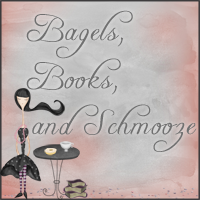






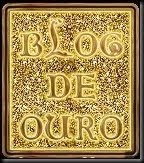

.jpeg)

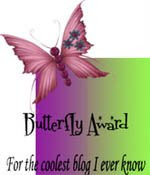

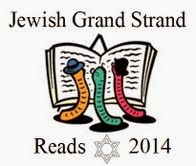

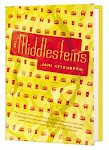



3 comments:
What a great interview! I learned a great deal about her and her book. Thanks for posting this. I have to read this book! I'm going to listen to book club girl's show even though I don't have the book.
Great interview. I can't wait to read this. Just got it in the mail today!
I read Diana's book and participated in the live broadcast interview by Jennifer at Book Club Girl. Great book, I recommend it highly. I've read 2 or 3 guest post's by her that are interesting, and she's funny too. I can't wait for her next work.
Post a Comment